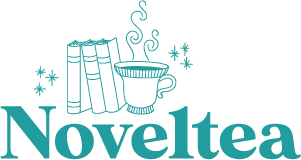A guest review by @bookspluscaffeine
If you could choose a superpower, what would it be?
Pretty much every school kid has asked and answered this question. But rarely do we ask, what would it actually be like to have that superpower?
The #novelteabookclub September pick, The Invisible Man, 1897 science fiction novel by H.G. Wells, gives an insight into invisibility (pun intended).
What would it be like to be invisible? Maddening, isolating, fatal.
An obsessive ex-medical student, Griffin, devotes years of his life to discovering the secret to becoming invisible, and achieves the transformation, only to discover almost immediately it's actually utterly awful; you get knocked over in the street, you can't interact with anybody, you struggle to find places to eat and sleep safely. For Wells' invisible man, his body may be unseen, but the clothes he wears are visible (a significant issue in the cold of an English winter), and so is the food he eats until it has "assimilated" with his body (hmm... don't think about this too much).
We are dropped into the story as the invisible man is working away on a reversal to his predicament in a wintery quiet country town inn wearing his disguise - "muffling" - (covered from head to toe complete with fake nose, bandaging around his face, lots of scarves and big coat).
The people in the town become suspicious and soon realise something is a bit off with this guy, his secret is revealed, and all hell brakes loose. Tension builds to a brutal climax, then a pondersome prologue (I love those reader-gets-inside-view-to-what-happens-after-the-story bits).
This book is certainly not my usual genre, and don't go looking for a scientific formula to superpowers here, but I enjoyed the moral exploration into what happens after we push science too far.
(Side note - It also sparked great conversations with my mum who remembered hearing old radio recordings of another H.G. Wells story, The Wars of The Worlds. Apparently some people believed it as real news when it originally aired!)
The Invisible Man was featured in the September 2019 Classic parcel from the NovelTea Book Club. If you’d like to learn more, or sign up to receive one of our monthly book & tea subscription parcels, please feel free to check out the rest of our website.








